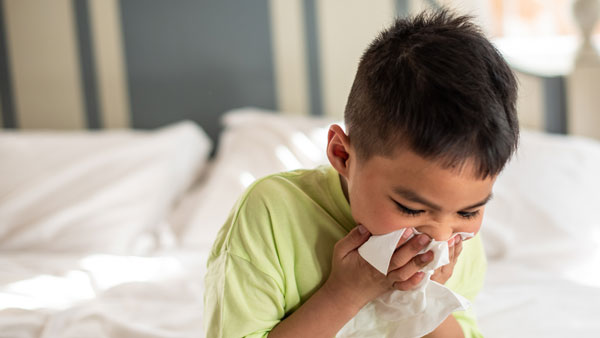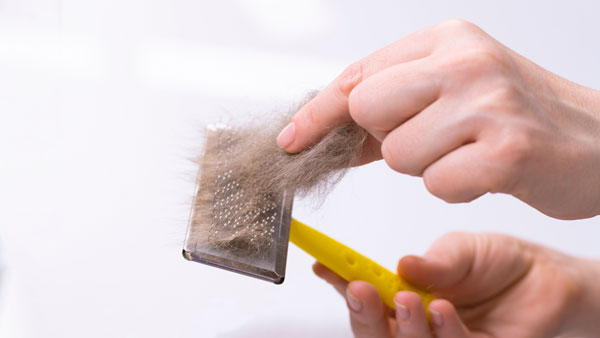
Posted: February 16, 2023 at 9:20 am
By: Lakes Region HVAC
According to the APPA National Pet Owners Survey, 70% of U.S. households , or about 90.5 million families in the United States, have a pet. Pets are a hallmark of American culture; we hold our animals close to our hearts. However, pets unfortunately, can impact indoor air quality. When there is approximately one cat or dog for every 2.4 people, it leads to a significant amount of dander and other pollutants in a homes' air. If you are a pet owner, there are many ways you can combat this.

Pet dander are flakes of skin shed by animals. Some people experience an allergic reaction to the proteins found in pets’ skin cells, saliva or urine which can find their way into the lining of the nose or eyes, leading to symptoms such as: itchy eyes, congestion, and sneezing. Some people develop rashes, hives or contact dermatitis as well.
Pet dander does affect indoor air quality, but fortunately, there are solutions to ensure the comfort and health of everybody in your home.

If you own a furry friend, having them groomed regularly will help reduce the number of allergens in your home. If dander is your main concern, consider using a dander remover on your pet. If you have a litter box, cage, or crate for your pet, consistent cleaning can counteract the amount of pet pollution spread throughout your home.
Dander is microscopic and has a jagged shape, which makes it easy to get stuck to bedding, furniture and fabrics once it becomes airborne. Regularly cleaning your home is an effective way to keep pet dander at bay. Vacuum carpet floors with a vacuum cleaner that has a small-particle or HEPA filter, mop your floors and wipe down cabinets and appliances regularly, as well as wash sheets, pillowcases, blankets, area rugs and floor mats.
The more pets you own, the more pollutants end up in your HVAC filter. When your filter is dirty, pollutants can make their way back into the air. Due to this factor, you will likely need to change the filter more frequently. Consult a professional HVAC technician if you are unsure how often you should be changing your filter.
With the right air quality system, your indoor air can potentially be fresher than the air outdoors. Air purifiers can remove pollen, mold, dust, bacteria and viruses from your home. If you are unsure of the quality of your indoor air, consider getting an indoor air quality test.
If you have any questions, one of our trained professionals can advise you further.
If this article is useful to you, or if you know someone who can benefit from it, please Share it.
Have another question? Contact the Lakes Region team, and we’ll find your solution.
Our clients are homeowners, small business owners, and corporations—and one could be you by calling 603-286-2290 or emailing info@lrhvac.com.
Lakes Region’s expert service technicians and installers are trained in the latest advancements in heating and cooling technologies. We'll help you select the correct comfort system for your home, ensuring that your equipment operates at the highest efficiency — giving you the lowest monthly operating cost.
Visit our website.
LRHVAC’s office hours: Monday - Friday
7:30-4:30
Phone: 603-286-2290
Mail: 86 Bay Hill Rd., Northfield, NH 03276
Email:
Email us